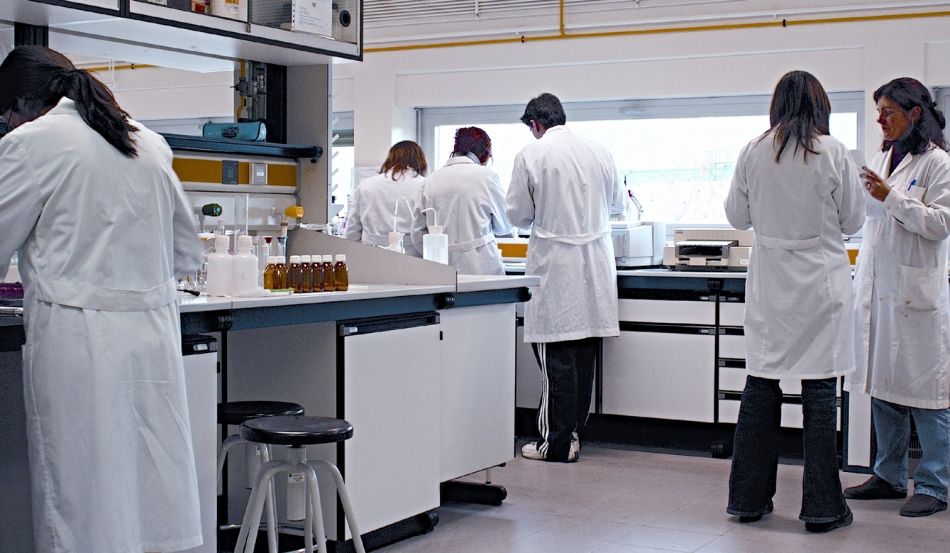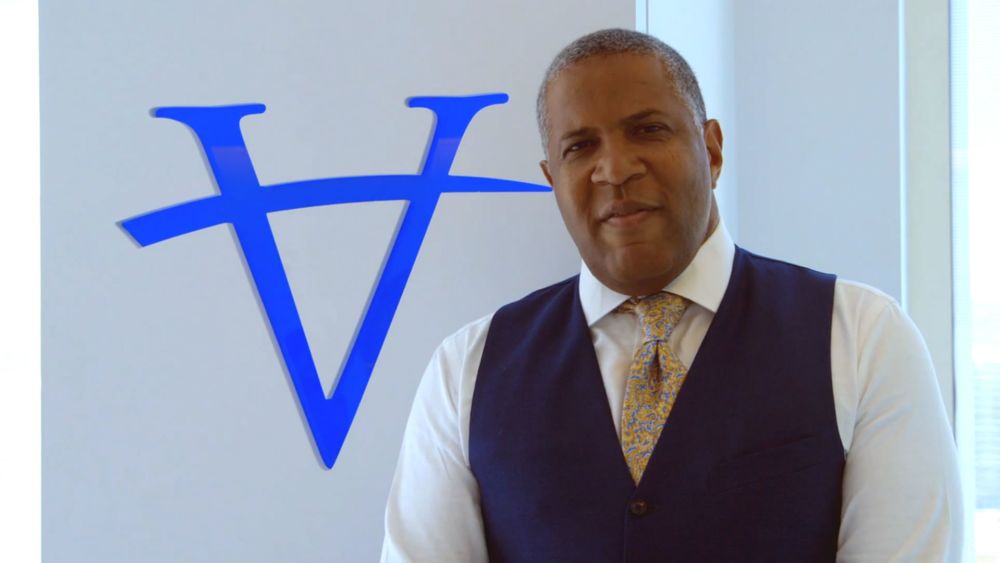The MetaMed Model: Harnessing the Power of Information to Expedite Patient Health
Greggory Moore | Best of Best

image by: Urcomunicacion
If knowledge is power, then MetaMed may prove strong enough to change the diagnostic paradigm in the world of medicine by harnessing teams of doctors and researchers to help individual patients find out what's wrong.
Not knowing may not be the hardest part of illness, but it certainly makes it that much harder. Worse yet, not knowing can be the difference between being treated in a timely fashion and suffering dire consequences.
While going to your personal physician is always a good first step, if she is unable to diagnose the trouble, you may find yourself in a hellish limbo of being left to your own devices to seek out second, third, and fourth opinions or shuttled between specialists who may have no more luck figuring out what's wrong. In the process, time is passing, which at the very least is stressful—the last thing you need when you're sick.
Founded two years ago, MetaMed has introduced another option into the medical world, one that may eventually change the whole diagnostic ballgame. The key is information—collecting it, evaluating it, and putting it in the hands of those who need it most.
While the Web is full of generalized sources of medical information—some of it fairly reliable, some not so much—MetaMed offers something new: personalized medical research. Sign up with MetaMed, and you benefit from a team of not just doctors but researchers , engineers, and applied mathematicians—people who know how to gather and comb through the available research that might help identify what's going on with you and how best to make you better. "There is so much needless suffering in healthcare—caused by a gap between what is known and what is done," MetaMed says in their mission statement. "All of us at MetaMed are dedicated to closing that gap for you, the patients we serve."
According to Brenda Mathisen, MetaMed executive vice-president of Sales & Marketing, when it comes to uncommon or not readily apparent illnesses, traditionally patients might not receive the available information that is pertinent to their case until they've been to dozens of doctors and spent tens of thousands of dollars, if at all. In many cases the necessary information is buried deep in the medical or biochemical literature, perhaps in another language.
Or perhaps what a patient needs to know about is a FDA-approved drug that is no longer marketed or a drug approved for use only in another country. Or what about cutting-edge technologies still in development? This is the kind of information of which often even good doctors are unaware.
This is where the MetaMed model has a great deal to offer. Founded not by not just doctors but by specialists in informatics such as Skype founder Jaan Talinn, part of MetaMed's grand attempt is to bridge the information gap between people—patients and doctors alike—and the data pertinent to their medical needs.
It was Michael Vassar, former Machine Intelligence Research Center President and another of MetaMed's co-founders, who made the connection. From his work at the Singularity Institute, Vassar realized that there was a plethora of valuable medical technologies across the globe that, while they may still be in development, have garnered significant evidence that they're safe and effective—often more so than what is generally available. Not to mention the large number of technologies that have made it through FDA approval but have received precious little press. As Mathisen notes, it takes an average of 17 years for medical technologies to be widely adopted in the United States.
"That means there are patients out there for 17 years who need a specific treatment [that] exists, but they just don't know about it," she says. "[But] most patients can't wait 17 years to get the treatment that they need."
Another thing most patients cannot do is fully understand the medical literature that is out there even if they do have the time, energy, and wherewithal to track it down.
"Patients then end up spending hours on the Web trying to find answers, but [are often] still not quite sure of what they read," Mathisen says. "There are patients who don't have a medical background to understand some of the more complex mechanics of what's going on. So they're sitting there trying to read research papers and find out what it all means."
Moreover, bringing the information they find to their doctor may lead to more frustration, as the patient may find herself with information of which her doctor is unaware—and which may not be reliable, anyway, or may not apply to their particular case.
"Or if it is [reliable], maybe it's a single study done in Romania 15 years ago, and they didn't know how to find it," Mathisen says. "[…] It's not their doctor's job to keep up with what's the latest on WebMD and everywhere across the Internet. [… Moreover,] even when you have good doctors, it's not always easy in the medical system to be able to have the long conversation to get educated about what's going on in your body, especially when it's complex or there are complications."
MetaMed remedies the whole lot of these issues by combining its core informatics team with a group of about 40 doctors and researchers, plus a network of hundreds of others—including founders of medical technology companies—whom can be drawn upon when their specializations are relevant to a particular case.
From the patient's end, the process is not complicated. An initial free consultation with a physician helps the patient determine what level of MetaMed service—"core," "expanded," or "concierge"—may be most fitting for the patient's needs. Even at the most basic level, MetaMed complies a complete medical history for the patient and a concise review of the primary medical literature pertinent to the patient's case.
But it's at the higher levels of service where an investment in MetaMed may really prove its value, with an in-depth review of a patient's complete medical history, reviews of the secondary medical literature, a Bayesian mathematical assessment of the patient's diagnosis, and perhaps the creation of "new unique models of disease risk and the complex links and relationships that develop over time between different conditions," "new unique models of disease progression," and even "a limited experiment to obtain data that is currently unavailable."
As you might expect, service like this comes at a cost. Mathisen says the price tag for an average "full research" case starts at about $10,000. But the company is hopeful that a variety of factors will help them be able to bring the cost down over time.
"We make our prices as affordable as possible given the amount of human effort and raw thinking power that it's going to take to go out and gather this information and then distill it down for you in a way that's going to make sense," she says. "[…] The way that most new technologies work is they start expensive because they're new and they haven't yet scaled. And then as they grow in volume, then the cost can come down. And that is what we're aiming for. […]
As we go through more and more cases and build up a library of information [and are] able to organize it in a way where it's going to become increasingly efficient to offer. Probably within five to ten years this is going to be widely affordable—and ideally, available in every physician's office across the globe, […] to integrate this type of research into standard care."
Mathisen is quick to underline the point that MetaMed is not a competitor of many of the generalized medical services already available on the Internet. "Where we're most useful is where the simpler methods don't work," she says. "We're not trying to compete against Grand Rounds or WebMD or some of the basic second-opinion services. Because if you just need to talk to another doctor, you can go and talk to another doctor pretty simply at a lower cost. […]
For basics, you should definitely go do the easy, cheap thing that's right in front of you, just like Wikipedia is a fantastic for gaining quick access to information about just about anything. But if you need information that you know is accurate, that you know is complete and want to get an interpretation about how all of the different sources of data come together into something that's going to be meaningful and help you feel good that you have the right answer, that's when something more in-depth is really of value. […] No one else is doing what we're doing because it's not easy."
Mathisen says that although currently health-insurance companies don't cover a service like MetaMed's, the company hopes to see this change within the next few years.
"[B]ecause what we do is very unique, it's going to take some time," she says. "There is no billing code for distilling information to get to the right things. […] One of the things that's been missing in the healthcare system is that you can pay a lot of money for diagnostic tests and treatments. You could spend a lot of money looking in all the wrong places first."
Mathisen says that part of what will help MetaMed become more of a mainstream service is if the paradigm shifts away from its current narrow focus on finding the most effective way to improve patient outcome with every dollar spent.
"If you're optimizing for outcome per dollar spent, that can sometimes get in the way of a particular outcome overall, and it [becomes] very easy to get the most efficient care instead of the most effective care," she says. "Our vision is for every patient to get the care that is the best for them, rather than the care that is the best statistically overall. […] That personalization is a big part of what's still missing at larger medical groups, even in socialized medicine."
MetaMed derives its funding solely from its patients, a choice Mathisen says helps ensure that there is no bias in favor of (e.g.) a big pharmaceutical company. All MetaMed cares about is how to serve their patients.
"What's the least invasive, safest, most effective way for this particular person?" she says. "If we can stop and get the information we need before preceding, it can save lives and it can improve quality of life for decades to come. It can make positive changes that the standard care just couldn't have done. That's really easy to miss when you're sick and you just want the first thing that looks like an oasis in the desert. The difference is seeing the oasis in the desert and running toward it versus taking out a map and seeing where you are, then going to the thing that's really going to make a difference. We try to be that GPS of the medical system to help people figure out where they really need to be going and help them work with their doctor to make the most informed decision. […]
When you look at the choice between going from doctor to doctor to doctor, clinic to clinic, and hoping that this one will have the answer versus going to one place that can scour the whole globe and see what's out there and then point you in the right direction the first time off, it's a tremendous value if you're in a situation where you really want to get it right the first time."
About the Author:
Except for a four-month sojourn in Comoros (a small island nation near the northwest of Madagascar), Greggory Moore has lived his entire life in Southern California. Currently he resides in Long Beach, CA, where he engages in a variety of activities, including playing in the band MOVE, performing as a member of RIOTstage, and, of course, writing.
His work has appeared in the Los Angeles Times, OC Weekly, Daily Kos, the Long Beach Post, Random Lengths News, The District Weekly, GreaterLongBeach.com, and a variety of academic and literary journals. HIs first novel, The Use of Regret, was published in 2011, and he is currently at work on his follow-up. For more information: greggorymoore.com

Introducing Stitches!
Your Path to Meaningful Connections in the World of Health and Medicine
Connect, Collaborate, and Engage!
Coming Soon - Stitches, the innovative chat app from the creators of HWN. Join meaningful conversations on health and medical topics. Share text, images, and videos seamlessly. Connect directly within HWN's topic pages and articles.
















